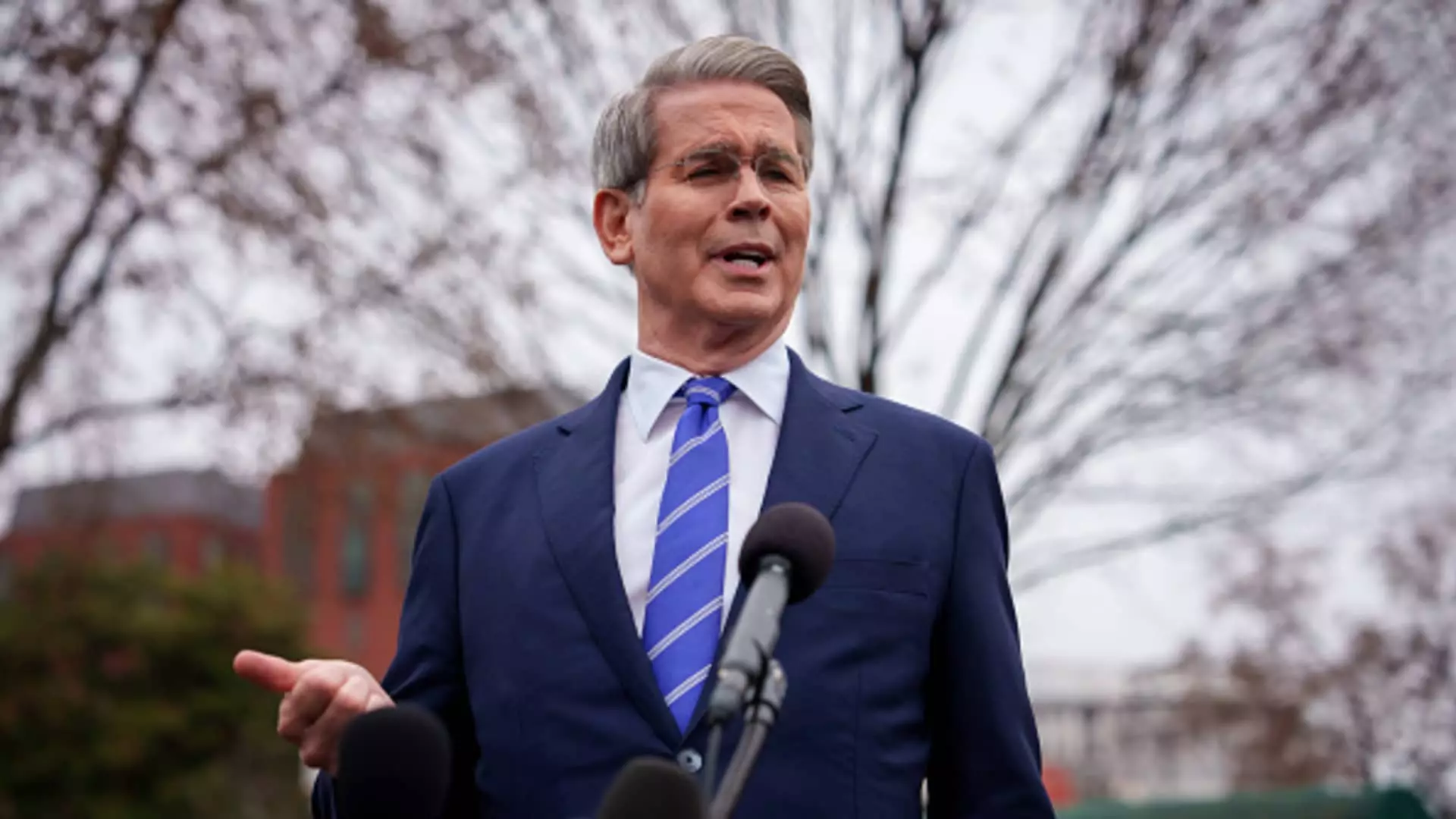Recent commentaries from Treasury Secretary Scott Bessent shed light on the turmoil currently gripping the stock market. His assertion that the dramatic sell-off is primarily linked to major technology stocks rather than the protectionist policies of the Trump administration opens up a multifaceted discussion. Bessent specifically referenced the so-called “Magnificent 7” — a group of tech giants including Apple, Amazon, and Tesla — who collectively face a crisis of confidence. This is not merely market noise; it’s an indication of deeper uncertainties regarding the viability and sustainability of these companies in an increasingly competitive landscape.
The most immediate catalyst for this chaos appears to be the emergence of DeepSeek, a Chinese AI startup that has unveiled a series of language models that pose a serious threat to established U.S. tech paradigms. While Bessent tries to redirect the blame from tariffs and geopolitical tensions toward investor psychology, one cannot ignore the fact that these tech behemoths have relied heavily on their dominant positions for growth. A sharp decline in their stock prices signals more than just market volatility; it reflects apprehensions about their long-term prospects.
Tariffs: A Sword of Damocles
While Bessent seeks to cushion the impact of President Trump’s tariffs as a non-factor in the immediate sell-off, the reality is more complicated. The protective measures enacted have sent shockwaves throughout the market, catching even the most seasoned investors off guard. As tariffs escalate, the economic landscape becomes increasingly murky — pushing inflation expectations higher and instilling fears of a recession. If tariffs are indeed a secondary problem, they still hang over the market like Damocles’ sword — a potentially disastrous outcome lurking at every turn.
Wall Street has reluctantly acknowledged that these aggressive tariffs could indeed lead to corrections in the S&P 500, with the index at risk of slipping back into correction territory for the second time this year. Recent history has shown that markets do not take kindly to uncertainty, and the current climate of protectionism adds a layer of unpredictability that cannot be ignored. The implications of this continued tension could reverberate throughout the global economy.
Investor Confidence: A Fragile Entity
The underlying theme of this stock market tumult is a significant erosion of investor confidence. The turbulence in tech stocks isn’t merely a byproduct of isolated incidents; rather, it is indicative of a broader unease about the economic environment. The fears are not unfounded, as the tech sector serves as a barometer for the overall market. When confidence in these flagship companies dips, the repercussions can be swift and severe.
Investors are left pondering: Are we witnessing merely a correction, or is this the beginning of a more substantial downturn? Bessent’s assertion that “it’s going to be fine” as long as “we put the best economic conditions in place” seems overly optimistic in the current climate. It highlights a failure to grasp the weight of uncertainty that tariffs and international competition impose on markets.
The Bottom Line: A Complex Web of Variables
Scott Bessent’s attempts to disentangle the recent stock market sell-off from the implications of tariffs suggest a simplistic view of a vastly complicated scenario. While it is true that technology companies face unprecedented competitive pressures, the intertwining of this situation with the broader political landscape cannot be disregarded. The need for a more nuanced understanding of these financial dynamics is critical. Investors and policymakers alike should be prepared for a prolonged period of volatility as the global economic landscape continues to evolve.

